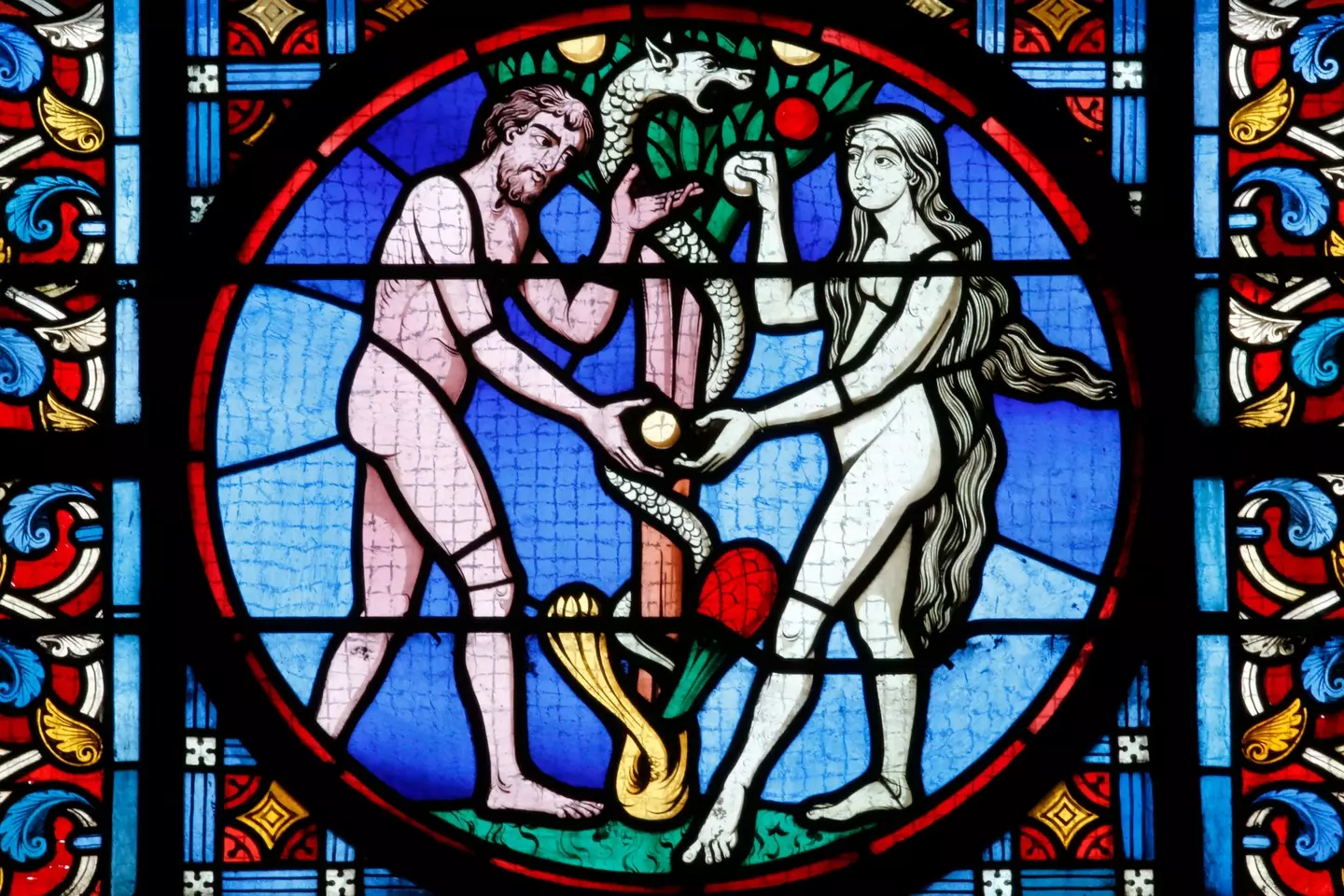According to the narrative, Adam and Eve were formed from dust, with Adam being shaped on the sixth day, and Eve created from one of his ribs.
The pair resided in the Garden of Eden until Eve succumbed to the temptation of eating a forbidden fruit, resulting in their expulsion from paradise into a realm of good and evil.

While Christians perceive the biblical account as the origin of human life on Earth, many others have been skeptical of its veracity.
Initially, scientific investigations indicated that the ancestors who contributed to the male Y chromosomes and female mitochondrial DNA existed tens of thousands of years apart.
However, current scientific evidence implies that all living humans today share a common ancestor.
The concept of ‘Mitochondrial Eve’ refers to a type of genetic material passed down from mothers to their offspring, which can be tracked in all human DNA.
Geneticists have traced this material to determine the starting point of this lineage, dating it back to approximately 200,000 years ago.

Furthermore, research from the University of Sassari in Italy suggests that Adam existed between 180,000 to 200,000 years ago, based on similar investigations of the Y-chromosome, placing both Adam and Eve in the same historical period.
Dr. Joshua Swamidass, a biologist from Washington University, contends that humanity may have originated from a single couple, as indicated by the evidence of Mitochondrial Eve and Y-chromosome Adam.
In an article published in Perspectives on Science and Christian Faith, Dr. Swamidass states: “Many individuals are each individually ancestors of ‘all the living’.
“All humans alive descend from each of these universal ancestors. The same can be said for all alive in AD 1, or all alive when recorded history begins.
“Two of them could be a particular couple, named Adam and Eve in scripture, from whom we all descend.”

Despite this, the doctor did not claim that Adam and Eve were the exclusive progenitors of humanity. Additionally, the theory of evolution does not rule out their possible existence, as reported by The Daily Mail.
However, aligning the biblical account with scientific perspectives requires discarding several original elements, such as the notion that God created Adam and Eve and whether our ancestors were Homo sapiens.
Dr. Swamidass notes that Homo sapiens were not the earliest humans on Earth, pointing to other human species like Homo habilis, which lived approximately 1.9 million years ago.
Nonetheless, some scientists are considering the possibility that Eden was an actual location where civilization began.
Archaeologists have suggested that the biblical description of Eden might correspond to historical Mesopotamia, which includes areas of modern eastern Syria, northwest Turkey, and a significant portion of Iraq, as reported by the Daily Star.
Professor Eric Cline, a classical and biblical archaeologist at George Washington University, argued in his book “From Eden to Exile” that there is evidence supporting the biblical narrative.
He wrote: “This makes some sense from a textual point of view.
“Not only does the biblical account say that the garden lay ‘in the east’, meaning to the east of Israel, but it also mentions the Tigris and Euphrates Rivers in connection with the Garden of Eden.”
However, other researchers propose that the Kalahari Desert in Africa could be the ‘ancestral homeland of all humans alive today’.
